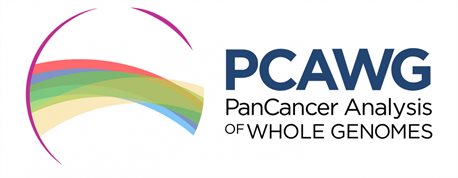Southampton clinicians part of international study into genetics of individual cancers

An international team – including clinicians from University Hospital Southampton – has completed the most comprehensive study of the genetics of individual cancers which will significantly improve understanding of the disease.
The Pan-Cancer Analysis of Whole Genomes Project (PCAWG), known as the Pan-Cancer Project, is a collaboration of more than 1,300 scientists and clinicians from 37 countries which analysed more than 2,600 genomes of 38 different tumour types.
This network then enabled the creation of 16 working groups to study multiple aspects of the development, cause, progression and classification of cancer.
It is the first time researchers have explored the 99 per cent of the genome – the complete DNA of an organism – which controls how genes are switched on and off. This has been described as mapping the interiors of continents and not just their coastlines.
Previous studies have focused only on the 1 per cent of the genome that identifies proteins.
Through the Pan-Cancer Project, clinicians have created a comprehensive resource for cancer genomics research which includes raw genome sequencing data, software for cancer genome analysis and multiple interactive websites exploring various aspects of project data.
In 23 papers published in Nature and its affiliated journals, the Pan-Cancer Project reports findings including how using a suite of analysis tools can characterise every genetic change found in a cancer.
The papers also show researchers are close to cataloguing all of the biological pathways involved in cancer and having a fuller picture of their actions in the genome, as well as establishing a new method of “carbon dating”.
This means it is possible to identify gene mutations which occur years, sometimes even decades, before a tumour appears.
In addition, the project has identified that types of cancer can be identified accurately according to the patterns of genetic changes seen throughout the genome, potentially aiding the diagnosis of a patient’s cancer where conventional clinical tests could not identify its type.
 Professor Tim Underwood (pictured), a consultant gastrointestinal surgeon at UHS and professor of gastrointestinal surgery at the University of Southampton, said: “I am proud patients and clinicians from Southampton have played a part in this extremely important international study which has provided insight into the DNA of cancers that we have never had before.”
Professor Tim Underwood (pictured), a consultant gastrointestinal surgeon at UHS and professor of gastrointestinal surgery at the University of Southampton, said: “I am proud patients and clinicians from Southampton have played a part in this extremely important international study which has provided insight into the DNA of cancers that we have never had before.”
Tim Dudderidge, a consultant urological surgeon at UHS, said: “Being involved in research like this is what makes me want to work at UHS.
“In this case research involving more than 1,000 scientists and clinicians is providing the detail we will need to understand how each person’s cancer is different and needs different treatment. We are a step closer to individualised cancer therapy.”
Dr Peter Campbell, member of the Pan-Cancer Project steering committee and head of cancer, ageing and somatic mutation at the Wellcome Sanger Institute in the UK, added: “This work is helping to answer a long-standing medical difficulty, why two patients with what appear to be the same cancer can have very different outcomes to the same drug treatment. We show that the reasons for these different behaviours are written in the DNA.
“The genome of each patient’s cancer is unique, but there are a finite set of recurring patterns, so with large enough studies we can identify all these patterns to optimise diagnosis and treatment.”